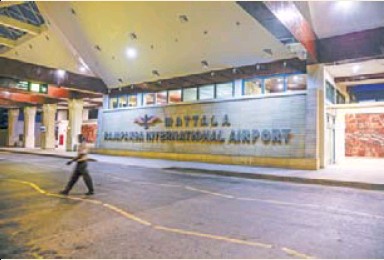- Why is India keen on taking over a ghost airport



Gireesh Chandra Prasad & Elizabeth Roche
Sri Lanka may give India control to operate its loss-making Mattala Rajapaksa International Airport in Hambantota, the country’s civil aviation minister Nimal Siripala de Silva told its Parliament last week. Mint looks at the implications of the deal.
1 Why is this deal important?
India taking over what is dubbed the world’s emptiest airport is seen as proof of the India-China rivalry playing out in Sri Lanka. The airport is located 18km away from Hambantota, which houses a port Sri Lanka built with loans from China—it has now been leased back to China to repay the loans. China now has plans to build a big SEZ around Hambantota, seen as a key part of China’s ambitious Belt and Road Initiative. New Delhi has reportedly bid for the Mattala airport on fears that it may also fall into Chinese hands.
2 How will it serve India’s interests?
India is buying the airport to block China’s plans to develop Hambantota into a naval base in the future, say analysts. Hambantota may be an ideal place for China to expand its naval presence. While Sri Lanka has said no Chinese naval facility will be allowed in the country, India fears Beijing’s influence may one day be so high that the Sri Lankan govt cannot refuse. According to analysts, overseas naval bases must be easily accessible by air. Taking over the airport will give India control over how the port is used.
3 What exactly is on offer?
India is reportedly looking at a 70% stake and operatorship in the airport for about $250 million. News reports say the airport is not operating even a single flight currently.
4 Is the airport economically viable?
The challenge for an investor would be to generate traffic and raise revenue from user charges as well as other streams, such as commercial ventures operating on the airport’s real estate. The airport has the capacity to handle one million passengers a year and is expected to handle five million passengers, 50,000 tonnes of cargo and 6,250 air traffic operations per annum by 2028, news agency PTI reported on Friday.
5 What drives India’s overseas asset acquisitions?
Generally, India’s overseas investments through stateowned enterprises are meant to secure the availability of energy and resources. India’s state-run firms operate oil and gas fields in Russia and Africa and pursue assets in Iran. Though commercial in nature, these asset acquisitions and trade deals are supported by strong state-to-state relations and diplomacy.
Courtesy: Mint:10 Jul 2018


